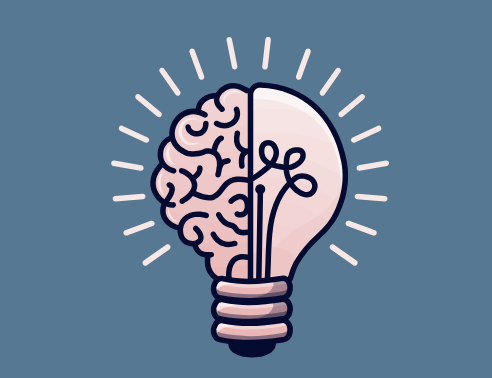How to Get Your Life Together in 10 Simple Steps
Life can often feel overwhelming, but it doesn’t have to be. Whether you’re feeling stuck, unmotivated, or just unsure of where to start, this guide on how to get your life together in 10 simple steps will help you take control and create a better future.
By following these easy and practical steps, you’ll be able to organize your mind, body, and environment, making room for a more fulfilling and productive life.
Let’s dive into the process and discover how you can get back on track—one simple step at a time.
Why Is It Important to Get Your Life Together?
Getting your life together means taking control of your emotions, habits, and decisions. It doesn’t mean perfection it’s about progress.
When you’re organized and focused, you’ll feel more confident, energized, and prepared to handle life’s challenges.
10 Simple Steps to Get Your Life Together
Here’s a step-by-step guide to help you take charge and transform your life.
Declutter Your Space
A cluttered environment can lead to a cluttered mind. Start by cleaning and organizing your living space.
- Donate items you no longer use.
- Organize your desk, closets, and digital devices.
- Create a clean, calming space that inspires productivity.
Why It Matters: A tidy environment reduces stress and boosts focus.
Set Clear Goals
Define what you want to achieve in life. Goals give you direction and purpose.
- Break long-term goals into smaller, actionable steps.
- Use the SMART method: Specific, Measurable, Achievable, Relevant, Time-bound.
Example Goal: Instead of saying “I want to get fit,” say, “I’ll exercise for 30 minutes, 5 days a week.”
Create a Daily Routine
A structured routine keeps you focused and productive.
- Start with a simple morning routine, such as waking up early, meditating, or journaling.
- Set time for work, relaxation, and self-care.
Tip: Gradually build habits into your routine to avoid feeling overwhelmed.
Prioritize Your Health
Physical and mental health are the foundation of a well-balanced life.

- Exercise Regularly: Even a 20-minute walk can make a difference.
- Eat Nutritiously: Focus on whole foods like fruits, vegetables, and lean proteins.
- Sleep Well: Aim for 7-8 hours of quality sleep every night.
Bonus: Exercise boosts not just your body but also your mood and self-esteem.
Practice Gratitude
Shift your mindset by appreciating the small joys in life.
- Keep a gratitude journal and write down 3 things you’re grateful for each day.
- Express gratitude to loved ones through kind words or gestures.
Result: Gratitude promotes positivity and reduces anxiety.
Build a Support Network
Surround yourself with people who encourage and uplift you.
- Seek out friends, family, or mentors who offer constructive feedback.
- Distance yourself from toxic relationships.
Tip: A strong support system is key to staying motivated and resilient.
Be Honest With Yourself
Take time to reflect on your actions and decisions.
- Are you procrastinating or avoiding responsibilities?
- Identify areas for improvement and commit to making changes.
Example: If you’re not meeting your goals, ask yourself why and adjust your strategy.
Manage Your Finances
Financial stability reduces stress and gives you freedom to focus on personal growth.
- Create a budget to track your income and expenses.
- Save money for emergencies or future goals.
- Pay off debt gradually by setting repayment plans.
Learn to Say No
Stop overcommitting and people-pleasing.
- Prioritize your own needs and goals.
- Politely decline tasks or events that don’t align with your priorities.
Why It Works: Saying no gives you more time and energy for things that truly matter.
Adopt a Positive Mindset
Your mindset shapes your reality. Focus on solutions instead of problems.
- Use affirmations to build confidence.
- View failures as learning opportunities.
Example Affirmation: “I am capable of achieving my goals.”
What Role Do EQ and IQ Play in Getting Your Life Together?
When working on self-improvement, understanding EQ (Emotional Intelligence) and IQ (Intelligence Quotient) is essential.
- IQ (Intelligence Quotient): Helps with logical thinking, problem-solving, and setting structured goals.
- EQ (Emotional Quotient): Helps you manage emotions, communicate effectively, and build better relationships.
Key Point: Balancing both EQ and IQ is critical. Use IQ to create a plan, but rely on EQ to stay motivated and connected to others.
Common Mistakes to Avoid
- Procrastination: Delaying tasks only increases stress. Break work into small steps to avoid feeling overwhelmed.
- Unrealistic Goals: Setting unattainable goals leads to frustration. Start small and build momentum.
- Neglecting Self-Care: Overworking without breaks leads to burnout. Make time for relaxation and hobbies.
FAQs
How long does it take to get your life together?
It varies for everyone. Small changes can show results in weeks, while major transformations may take months or years. The key is consistency and patience.
Can I start with just one step?
Start small—choose one step, like decluttering or setting a daily routine, and build from there.
What if I fail to stick to the plan?
It’s okay! Failure is part of the process. Reflect on what went wrong, adjust your approach, and try again.
Conclusion: How to Get Your Life Together in 10 Simple Steps
By following these 10 practical steps, you’ll create a strong foundation for personal growth and success. Getting your life together is a journey, not a race. Be patient with yourself and celebrate small victories along the way.
The key takeaway? Take it one step at a time, stay consistent, and never stop striving for improvement. With determination and focus, you’ll see your efforts pay off in ways you never imagined.
Start today and transform your life into one that brings you joy, balance, and purpose!







